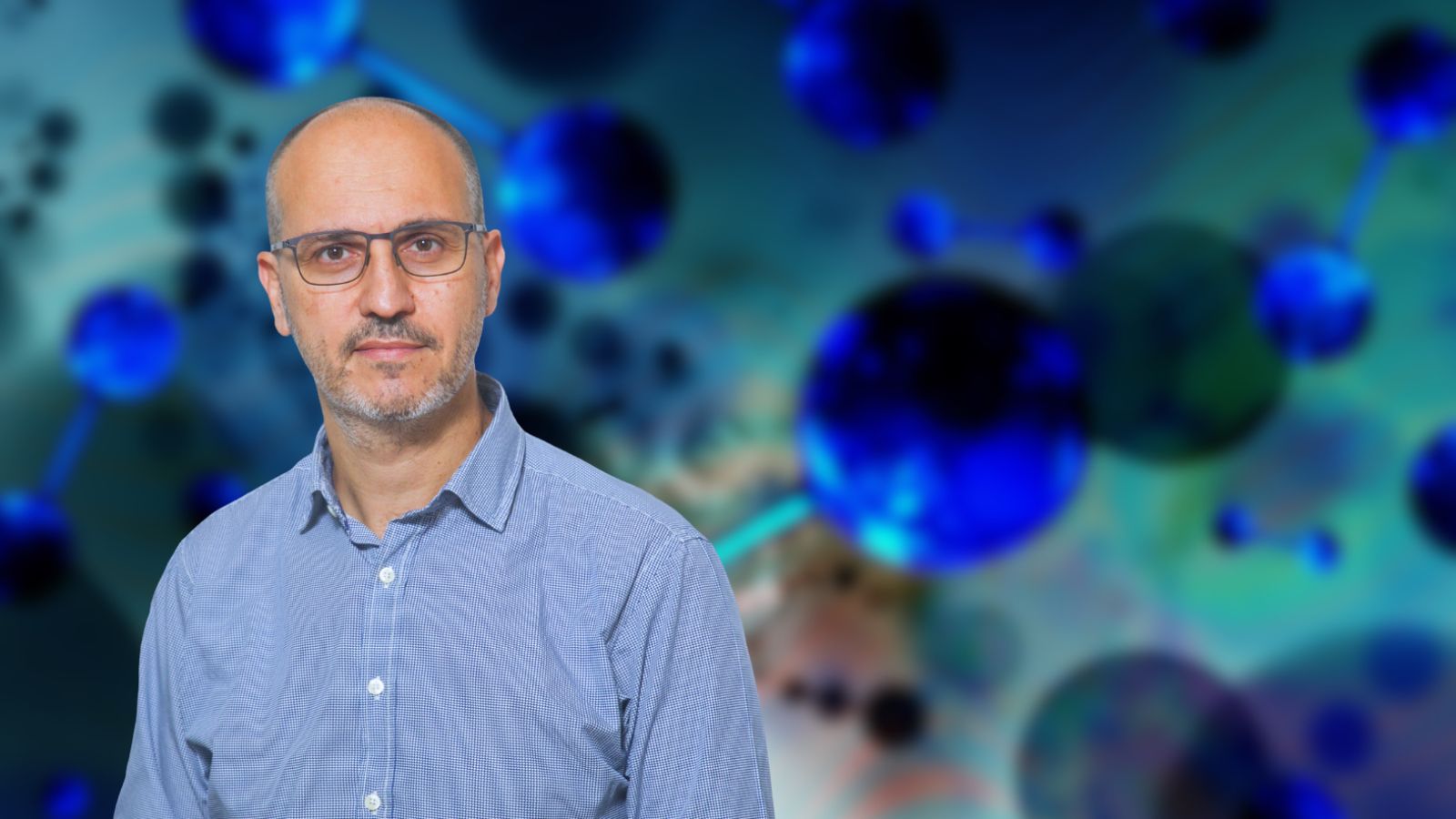Images
Rare Disease Day, which is commemorated on the last day of February each year, is dedicated to raising awareness and reflection about these pathologies. Rare diseases are those with low prevalence in the population.
According to data from the Spanish Federation of Rare Diseases (FEDER), to be considered rare, a disease can only affect a limited number of people. Specifically, when it affects fewer than 5 individuals per 10,000 inhabitants.
In the fight against these diseases, at IRB Barcelona, we are committed to interdisciplinary research through new projects aimed at better understanding rare diseases and developing new therapies and treatments.
The VPS13B gene under scrutiny in research into Cohen syndrome
Dr. Jens Lüders is one of the 38 researchers from 32 institutions who received funding to address 31 rare diseases. The funding was raised through the 2023 charity initiative “Million Dollar Bike Ride” hosted by the Orphan Disease Center at the University of Pennsylvania (USA).
This funding is allowing Dr. Jens Lüders, head of the Microtubule Organization in Cell Proliferation and Differentiation laboratory at IRB Barcelona, to undertake a one-year project entitled “Rescue of defective lipid handling in Cohen syndrome”.
Cohen syndrome patients suffer from a range of health issues involving various organs and body parts including degeneration of the retina leading to blindness.

This project aims to identify variants of the VPS13B gene (which is mutated in Cohen syndrome), with the aim of restoring the crucial functions of this gene in cells carrying the mutation. The results obtained may be valuable for the development of future gene therapy treatments.
The molecular function of the VPS13B gene is not yet clearly understood. Previous research conducted by Dr. Lüders' laboratory has suggested that the mutation of this gene leads to alterations in the lipid composition in the cells of patients with Cohen syndrome.
Lipid molecules are important building blocks of cellular membranes and in this project, Dr. Lüders' group seeks to identify the mechanism by which VPS13B deficiency impairs membranes in the cells of Cohen syndrome patients. Subsequently, the research team will attempt to correct this anomaly by introducing intact variants of the VPS13B gene into these cells.
The impact of polyglutamine expansion in Kennedy's disease
The Kennedy's Disease Association (KDA) has awarded $91,350 in funding for the two-year project “Polyglutamine expansion in aggregation AR in cells”, led by Dr. Xavier Salvatella.
KDA is a patient association that promotes research into Kennedy's disease, a rare neurodegenerative disorder. KDA has provided funding amounting to a total of $437,000 for four research projects and one scholarship.

The research undertaken by Dr. Salvatella, head of the Laboratory of Molecular Biophysics, stems from the idea that proteins lacking a well-defined structure, such as many transcription factors, can perform their functions through the formation of biomolecular condensates.
Building on their detailed knowledge of the structural properties of the androgen receptor activation domain, Dr. Salvatella's team proposes that a structural alteration leads to the onset of Kennedy's syndrome, partly causing the aggregation of the androgen receptor.
This project will study the physical properties of androgen receptor condensates in vitro and in cells, determining how they undergo structural changes and the implications of such alterations on cellular functions.
Finally, the team will identify small drug-like molecules with the capacity to inhibit the aggregation of the androgen receptor. These molecules may prove useful for drug discovery in the context of Kennedy's disease.
Screening of the documentary 'Fighting the Rare', which addresses Lafora Disease
To mark Rare Disease Day, at noon today, there will be a public screening of “Fighting the Rare”. This documentary provides an immersion into the world of Lafora disease, a rare neurodegenerative condition that affects adolescents. Through the testimonials of researchers, patients, and family members, it offers a comprehensive insight into the research being conducted on Lafora disease.
Dr. Jordi Duran, IRB Barcelona alumni, will introduce the documentary, sharing his experience and knowledge in this field of research.
About IRB Barcelona
The Institute for Research in Biomedicine (IRB Barcelona) pursues a society free of disease. To this end, it conducts multidisciplinary research of excellence to cure cancer and other diseases linked to ageing. It establishes technology transfer agreements with the pharmaceutical industry and major hospitals to bring research results closer to society, and organises a range of science outreach activities to engage the public in an open dialogue. IRB Barcelona is an international centre that hosts 400 researchers and more than 30 nationalities. Recognised as a Severo Ochoa Centre of Excellence since 2011, IRB Barcelona is a CERCA centre and member of the Barcelona Institute of Science and Technology (BIST).








